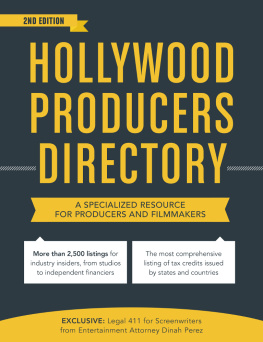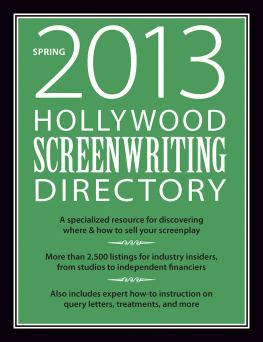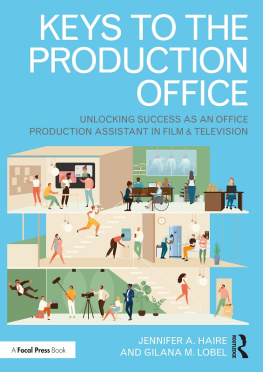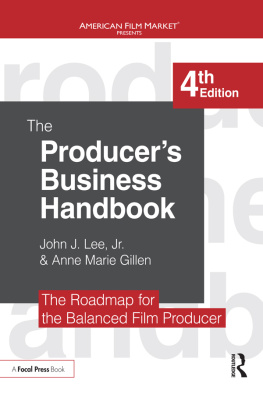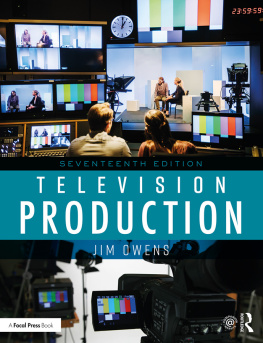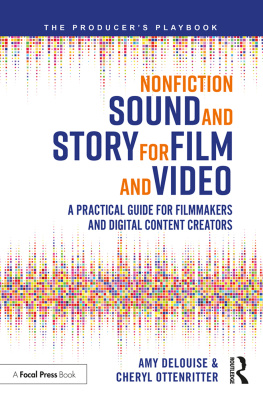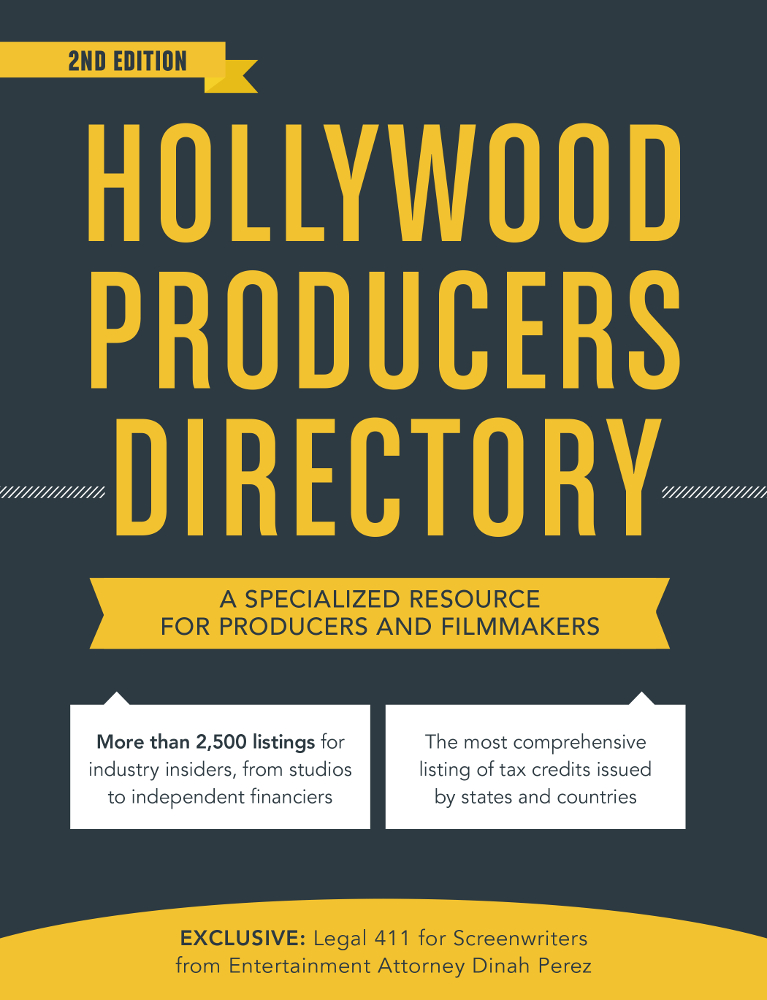Copyright 2017 by F+W Media, Inc.
All rights reserved.
No part of this publication may be reproduced in any form or by any electronic or mechanical means including information storage and retrieval systems without written permission from the publisher.
Published by F+W Media, Inc.
3510 West Magnolia Boulevard
Burbank, California 91505
www.fwcommunity.com
Production Incentives Data provided by and used with the express permission of DISC Intellectual Properties, LLC dba Entertainment Partners. For more information, please visit http://www.ep.com. Copyright 2009-2017 Entertainment Partners. All rights reserved.
This information is provided for informational purposes only. Entertainment Partners makes no representation or warranty, express or implied, as to the legal or factual accuracy of any information contained herein nor does Entertainment Partners make any representation, warranty or express any legal opinion as to applicable state or federal law concerning the interpretation or application of the information contained herein.
Legal 411 for Producers
By Dinah Perez, Esq.
This chapter only conveys the opinions of its author and is not a complete review of the subject matter. Furthermore, the information, laws and industry customs included in this chapter may change and vary state-to-state and country-to-country. Keep in mind that your specific circumstances and, hence, needs may differ from those presented herein. As such, consult with an attorney prior to implementing the information provided herein if you have questions, or require legal representation. The author and publisher of this chapter and book assume no responsibility for actions taken by you based upon the advice or information included in this chapter.
Introduction
Merriam Websters dictionary defines produce as to cause something to exist or happenand thats exactly what a motion picture producer does. The films we enjoy would not exist but for the efforts of their producers. The producer is the only person involved in the filmmaking process start to finish, from the genesis of the idea, through the screenplays development, funding, production, and exhibition of the final product.
You, as the producer, need to be as business savvy as you are creative. You have to know the business of producing, which includes development of the screenplay, attaching cast and a director, funding, and physical production of the film through delivery to the films distributor. Along the way, there are going to be rights that need to be acquired, negotiations, contracts to be entered into, unions to satisfy, legal issues, and formalities that need to be addressed. The law and business of filmmaking go hand-in-hand to such an extent that you will not proceed to production or distribution if you make a mess of the legal aspects of your screenplay and/or film.
My goal in writing this chapter is to inform you regarding the legal issues and pitfalls that you may encounter on your journey as a producer. The chapter is not a full exploration of the law, nor is it intended to make you an expert in the field of entertainment law. I have written the chapter to help you understand and spot the issues that may require legal counsel and, furthermore, to provide you with a basic understanding of the business of producing. The information is organized in a sequential manner from the hiring an attorney and issues that affect the screenplay through production and distribution of your completed film.
Hiring Legal Counsel
You will require the assistance of an attorney throughout your producing journey. How do you find the right attorney? Well, first off, only retain an entertainment" attorney (who I will refer to as attorneys going forward). Ask friends and colleagues for referrals, read blogs, books, and legal articles by attorneys, and read posts and responses by entertainment attorneys on professional social forums, such as LinkedIn. Many attorneys offer a free half-hour initial consultation. Interview as many as you need to find one that is a good fit for you. I use the consultation to determine whether I can or want to represent the potential client. I seek clients who have reasonable expectations, are open to advice, are able to pay my fees, and whose personalities are compatible with mine. I recommend you retain an attorney with whom you are comfortable, who respects you, believes in you, and tells you the trutheven if you do not want to hear it. If you want an attorney for the long term, which I recommend, steer clear of attorneys that intimidate you or are arrogant. Use the free consultation to shop for an attorneynot for the purpose of picking the attorneys brain when you have no intention of retaining legal counsel.
Attorneys are paid an hourly fee, a flat fee, or a contingent fee (a percent of the gross monies earned by you). Hourly rates run the gamut. How much you pay by the hour is going to depend on the attorneys experience and the size of the law firm. The average hourly rate is in the $300-$500 range. When billing on an hourly basis, the attorney charges for all the time spent on your behalf: negotiating, drafting, redlining (revising agreements presented to you), phone calls on your behalf or with you, copies, messenger service, etc. The attorney may represent you on a flat fee basis if your resources are limited, or the service can be billed on a flat fee basis. A flat fee entails the attorney quoting you a price that is inclusive of all the phone calls and work to be done by the attorney. I charge a flat fee for the formation of business entities, copyright registrations, trademark applications, screenplay submissions, and production legal. You will have to provide the attorney an upfront deposit based on the attorneys guesstimate or flat fee quote. Whether an attorney will represent you on a percentage basis will depend on whether you are earning money producing, have a track record, or have an offer on the table that will result in a payment large enough to compensate the attorney. It is unlikely that an attorney will represent you on a percentage basis otherwise. The average percentage is 5%, but it can be as high as 10% if the attorney is representing you on a very low paying matter. Sometimes an attorney will structure a hybrid billing arrangement so that you are paying a portion of your fee up front and the other portion as a percent of the monies earned by you. Attorneys do this sometimes to accommodate a clients limited financial resources.
You should enter into an Engagement Agreement with the attorney, which explains the basis of the representation, the fees, deposits (if any), and contains any necessary disclosures. The California State Bar requires an Engagement Agreement whenever the matter is going to result in payment to the attorney exceeding $1,000 and in contingent fee arrangements. You provide the deposit at the start of the representation, which goes into an attorney/client trust account. The attorney cannot withdraw the money from this account until it is earned. Any portion of the deposit remaining at the end of representation is returned to you. The attorney will require additional funds if the deposit runs out prior to the conclusion of the attorneys services.

